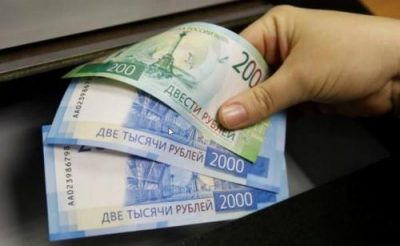Russia Demands Ruble Payments for Gas Instead Western Currencies

All Global Research articles can be read in 51 languages by activating the “Translate Website” drop down menu on the top banner of our home page (Desktop version).
To receive Global Research’s Daily Newsletter (selected articles), click here.
Visit and follow us on Instagram, Twitter and Facebook. Feel free to repost and share widely Global Research articles.
***
Recently, the Russian government has demanded that European countries pay for their natural gas imports from Russia in rubles, rather than in dollars or euros. The action aims to prioritize Russian monetary interests at a time of conflict and polarization between Russia and the West, as can be deduced from the words of the Russian president himself, who made it clear that the target states of the measure were “unfriendly” countries.
According to reports, Putin claimed that Western currencies are “compromised”, which is why it would be necessary to change the payment method to the Russian ruble. “Compromised” would be all currencies active in western countries considered hostile by the Russian government, which includes the US, UK and the entire European Union. In this sense, by preventing the use of Western currencies in transactions, Moscow would be guaranteeing its national interests, encouraging the growth of the search for ruble in the financial market.
As known, the Russian currency has been suffering a major drop since the beginning of the Special Operation in Ukraine, mainly due to the sanctions that have been imposed on Moscow. After the military operation’s beginning, the dollar grew by more than 104% compared to the ruble. Now, however, due to the Russian new payment policy, the trend is for there to be a significant increase in international demand for rubles, which favors Russian monetary and financial security.
Undoubtedly, there is no reason to be scandalized by this Russian measure. The Russian sanction against Western currencies is a moderate and peaceful one in the face of the attitudes that the West has been taking against Moscow in recent weeks, which include heavy sanctions such as banning the export of various consumer goods, exclusion flights in the airspace of NATO countries and various coercive maneuvers in the financial and monetary spheres (among which the most impacting one was the banning of the SWIFT system in Russia). So, considering all this, it is possible to conclude that, despite the apparent “shock” shown by Western media channels, the Russian attitude seems reasonable and prudent, seeking only to guarantee some Russian interests in the financial market.
Moscow has shown itself to be flexible on several points, tolerating that some transactions are not immediately transferred to the ruble system, giving a necessary time limit for the consolidation of the changes. However, the clear fact is that at some point European countries will need to present complete trade proposals in Russian currency if they want to continue to import gas.
In fact, adhering to the American measures, all the members of the European Union accepted to adopt the sanctions against Russia, which, despite pro-NATO propaganda, was really a big strategic mistake. If European nations had remained neutral about Ukraine, the Euro would not have been described as a “compromised currency” and countries using it would not be considered hostile. The sanctions, indeed, built the current polarized scenario in Europe and now the consequences are being seen clearly.
Many Union’s officials keep talking about a “contingency plan” to “reduce European dependence on Russian gas”, but this is a project with little chance of success. Russian gas is the fastest, cheapest, safest, and most ecologically correct option to supply the European market and no “contingency plan” will be drawn up suddenly to put an end to it without leaving serious consequences for the European supply. Now, the European public opinion is close to realizing that the EU’s governments have put the entire continent in a situation of not serving the interests of any European country, only the plans of NATO.
Still, in addition to the reaction to Western sanctions, it is also necessary to mention the geostrategic value of Putin’s maneuver. In the end, for its part, Russia just wants to ensure its insertion in the growing process of monetary multipolarization, where more and more countries accept to trade internationally using their local currencies. As an energy power, Moscow has the potential to strengthen the ruble and will not miss this opportunity.
Even if a contingency plan is devised to make Europe “less dependent on Russian gas”, this is not a matter for the current moment and Europe still needs gas for now while strategists think about such plans. So, accelerating the formation of a ruble payment plan for Euro-Russian transactions is a project of immediate urgency and could represent a major step towards normalization of Russia-EU relations.
*
Note to readers: Please click the share buttons above or below. Follow us on Instagram, Twitter and Facebook. Feel free to repost and share widely Global Research articles.
Lucas Leiroz is a researcher in Social Sciences at the Rural Federal University of Rio de Janeiro; geopolitical consultant.

